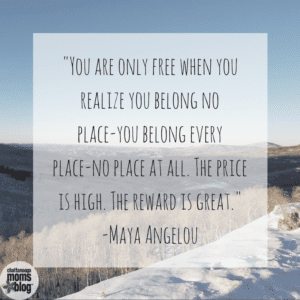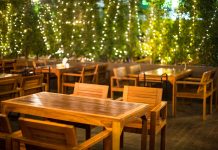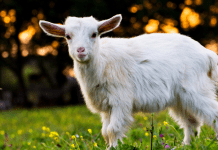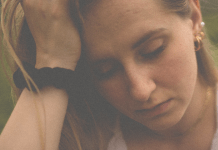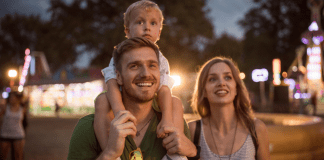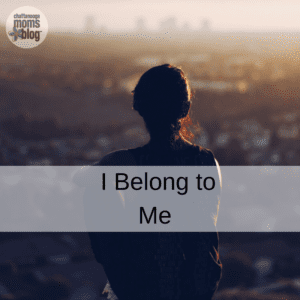 I recently read a book by one of my favorite authors, Brené Brown. The first chapter resonated with me deeply. It was about wanting to belong, having the feeling of belonging, and then experiencing the pain of loss upon realizing that we don’t in fact belong. The chapter also describes adjusting whom we are in order to feel like we belong, only to then realize that the feeling is not authentic and that we lose ourselves in the process. The moral of the story is that you belong to yourself; when you feel and accept that, you can be your authentic self.
I recently read a book by one of my favorite authors, Brené Brown. The first chapter resonated with me deeply. It was about wanting to belong, having the feeling of belonging, and then experiencing the pain of loss upon realizing that we don’t in fact belong. The chapter also describes adjusting whom we are in order to feel like we belong, only to then realize that the feeling is not authentic and that we lose ourselves in the process. The moral of the story is that you belong to yourself; when you feel and accept that, you can be your authentic self.
In other words, when you belong to yourself, you have the freedom to be you.
It so simple, yet so incredibly hard to let go of an idea ingrained in us. The need for validation, the desire to have a tribe, a community, friends — to be liked. What does that mean? Does it mean you must hold your tongue? Not speak up? Can you have both a community/tribe and still belong to yourself? Or will that community not embrace when you speak up and voice a different opinion? Is that the community you want?
I think people who feel like outsiders tend to give up who they are more often than those who feel a sense of belonging.
In the book, Dr. Brown shares a defining childhood moment in which she felt like she didn’t belong to her family. It wasn’t because her family consisted of bad people; they were doing the best they could. That’s what we are all doing, after all, even though that doesn’t mean there isn’t pain. Most people feel like they don’t belong, but at least they have their family. While reading this part, I had big feelings. Even though I wasn’t ignored or mistreated by my family, at some point I felt like I didn’t belong.
I think the feelings started in high school.
We moved almost every year between the ages of eight and 13. I felt like an outsider at eight when we moved to America, even though I still felt very connected to my family. Around this same time, I started making changes in order to assimilate, which meant I wasn’t being myself. At 13, we stopped moving and I started high school; four years later, I moved two hours away to attend college. My younger siblings however, remained at home putting down roots and making friendships. They played sports and, along with my parents, found their place in the community. When I would come home to visit, people would say “I didn’t know you had another child” to my parents. As the oldest, I always felt out of place. I felt like my family had created a perfect little family without me; I felt like I didn’t belong. I stopped coming home unless I needed something and, when I did go home, I’d bring a friend so I wouldn’t feel so alone. At that same time, I started making bad choices in order to numb my feelings (I am sure I made some bad choices also because I was young and ignorant, and enjoyed a good party).
I turned my back on my family because of my feeling of resentment, jealousy and pain.
I didn’t realize that these feelings stem from losing a sense of belonging to my family. My family didn’t do anything wrong; it’s not my siblings’ fault that they grew up in the same area for most of their lives; it’s not my parents’ fault that they kept moving until finding the best area for us to live. I’m grateful for all of it, but that lack of belonging led me on a destructive path; it led me to change myself in order to feel like I belonged. If only Brené Brown had written this book back then…although I doubt I would have read it!
